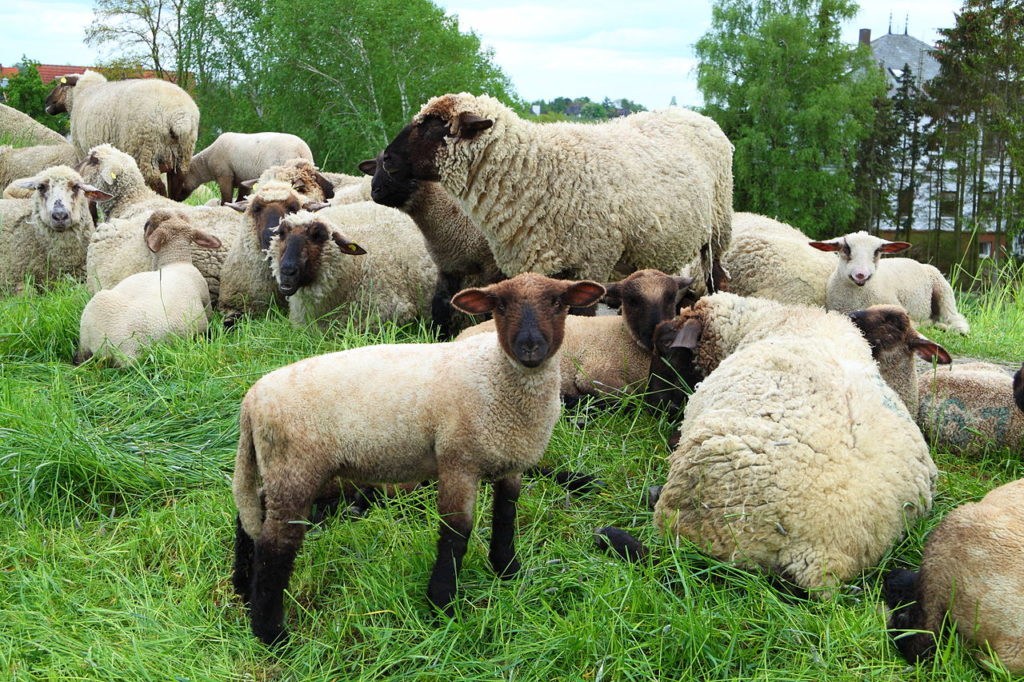A decision by the Flemish government to ban the slaughter of animals without stunning goes too far, and is not in line with EU law, according to an advice issued by the advocate-general of the European Court of Justice (ECJ).
In 2017, the minister at the time in charge of animal welfare, Ben Weyts (N-VA), proposed a ban on the slaughter of animals without them being stunned beforehand, and the proposal was passed by the Flemish government.
Stunning animals prior to killing them is routine in Western slaughterhouses, but is not common practice in the religious traditions of the Jewish or Muslim faiths.
The ban would mean that slaughterhouses in Flanders would not be able to deliver kosher or halal meat to their customers.
The practice whereby animals are slaughtered outside of approved slaughterhouses, such as happens at particular points of the religious calendar, was not addressed by the Flemish rule, as it is already illegal, albeit rarely implemented.
As it is, ritual slaughter is still able to be carried out in Brussels and Walloon regions, but only in approved premises, and by butchers approved by the religion and by the region.
Flanders was the exception, and that was the case brought by several religious organisations to the Constitutional Court of Belgium, which passed the question to the ECJ for their advice.
The latest development is an advice to the Court by advocate-general Gerard Hogan. The advice is not in itself binding, but in general the Court is inclined to follow the advocate-general’s advice more often than not.
In his opinion, advocate-general Hogan points out that EU regulations on slaughter express a clear obligation to take account of the welfare of animals “which are sentient beings”.
However it also includes the provision for “a derogation from that rule, addressing the necessity to guarantee the entitlement of those of certain religious faiths to preserve essential religious rites and to consume meat of animals which have been slaughtered in this religiously prescribed fashion”.
The law, then, the opinion states, represents “the desire of the EU legislature to respect the freedom of religion and the right to manifest religion or belief in worship, teaching, practice and observance, as enshrined in the Charter, despite the avoidable suffering caused to animals in the context of ritual slaughter in the absence of prior stunning”.
The European Commission is of the opinion that EU legislation properly reflects the balance between animal welfare and freedom of religion.
European Commission Vice-President Frans Timmermans was reported saying in May 2017 that according to his personal point of view, ”ritual slaughter should not be a problem if it is done by people trained to do so”. He added that, “On animal welfare, let the facts speak for themselves. Let science testify as to the suffering of animals when they are slaughtered”.
Flemish minister Weyts criticised the opinion of the advocate-general of the ECJ.
“I fundamentally disagree with this advice," he said in a response. Many Islamic countries already carry out ‘sedated slaughter,’ which is a sort of middle ground.
“Flemish democracy has spoken to end slaughter without stunning,” he said.
“In parliament, the vote was almost unanimous. I would therefore find it aberrant if that democratic decision was overturned in court.”
In an audit report in November 2018, the European Court of Auditors slammed wide-spread farm animal abuses in EU member states.
If the opinion of the advocate-general is accepted by the Court at a later date, the Court’s ruling will then be sent back to the Constitutional Court of Belgium, to allow it to make a judgement of its own.
Alan Hope
The Brussels Times

